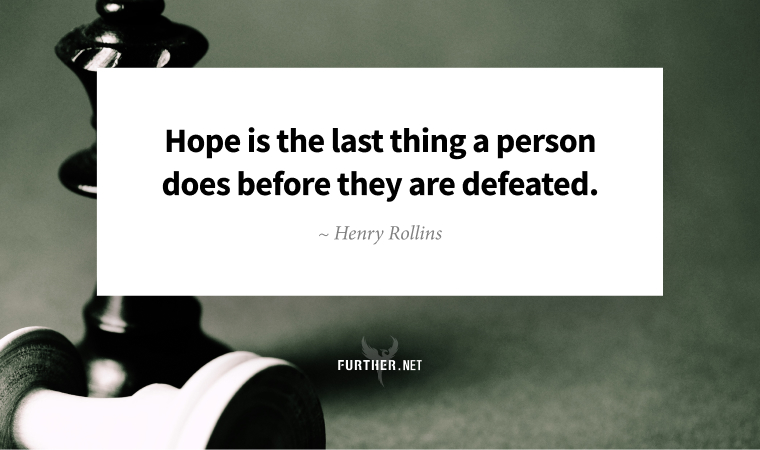
It’s hard not to feel hopeless nowadays. From the war in Ukraine to the devastating impact of the pandemic, climate change, and political and economic turmoil, things seem bleak.
So hoping for things to get better seems sensible. After all, hope helps power inspired action. And research shows hopefulness, unlike blind optimism, can be an action-oriented path to improving your health, relationships, and outcomes.
But there’s also a dark side of hope. Stubbornly stuck in a future-facing state, today’s suffering is ignored. Opportunities for evolution are put on hold. And today’s expectations-laden hopes can swiftly become tomorrow’s resentments.
Sometimes clinging to hope can feel like your only lifeline. But the truth is you might find what you need quicker and perhaps easier by letting it go.
Hope Not
In Buddhist nun Pema Chödrön’s seminal work on handling hardship, When Things Fall Apart: Heart Advice for Difficult Times, she eloquently articulates the downside of hope.
We hold onto hope and it robs us of the present moment. If hope and fear are two different sides of the same coin, so are hopelessness and confidence. If we’re willing to give up hope that insecurity and pain can be exterminated, then we can have the courage to relax with the groundlessness of our situation.
While Chödrön is speaking of a spiritual path, research also supports the idea that being overly reliant on hope robs us of the opportunity to start anew.
While there is some evidence it correlates with health, the correlation is weaker than you might think, suggesting that moderate hope may be better than high levels of hope. And, like most human characteristics that are complex and evolving, a single-minded view could prevent us from seeing the upside to giving up hope.
In other words, there is promise in hopelessness that’s well worth considering to make a better go of things today vs. hoping things will change tomorrow.
Dash Your Hopes
Ironically, hopefulness and hopelessness have a potent motivator in common: faith.
Passive hope can rob us of the present moment and a better future. Hope can keep us in that victim place if we just hold hope rather than live into an active expression of it. If we let go of hope in one area, we must trust that something new will come once we set our expectations free.
Ditching hopefulness means embracing reality, learning to live with grief and discomfort, and dropping the illusion of control. Releasing what might be and confronting what is can be a potent catalyst for change — and a fresh start. If you ask me, you can’t hope for anything better than that.
The Benefits of Giving Up Hope (Psychology Today)
